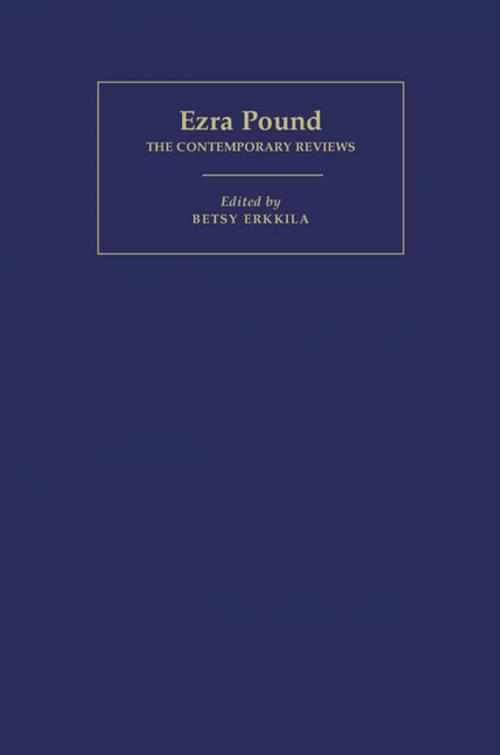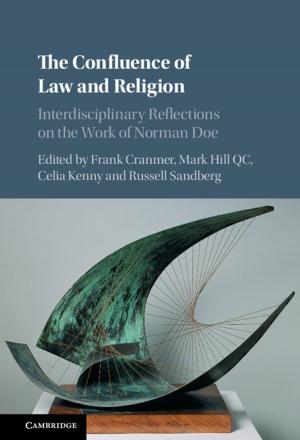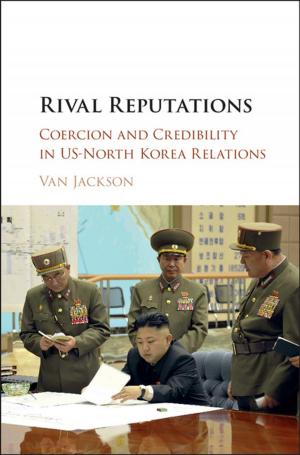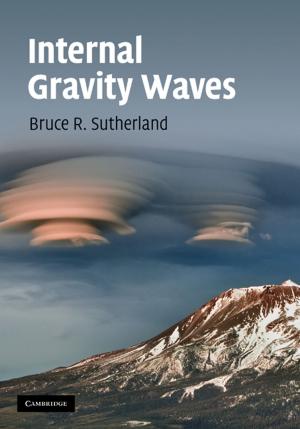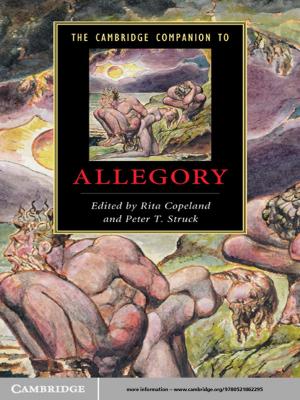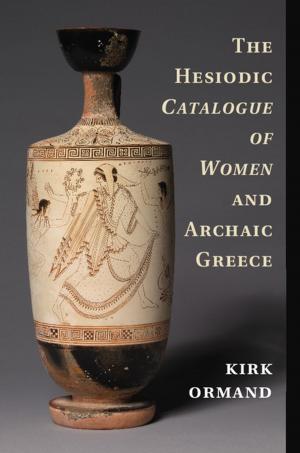Ezra Pound
The Contemporary Reviews
Fiction & Literature, Literary Theory & Criticism, Poetry History & Criticism, British| Author: | Betsy Erkkila | ISBN: | 9781139179287 |
| Publisher: | Cambridge University Press | Publication: | March 3, 2011 |
| Imprint: | Cambridge University Press | Language: | English |
| Author: | Betsy Erkkila |
| ISBN: | 9781139179287 |
| Publisher: | Cambridge University Press |
| Publication: | March 3, 2011 |
| Imprint: | Cambridge University Press |
| Language: | English |
No one better symbolizes the course of modern literature its triumphs and defeats than Pound. From the dreaminess and aestheticism of his early poems, to his Imagist and Vorticist manifestos, to the formally experimental method and mythic engagement with history in The Cantos, Pound marks the path that modern and postmodern poetry would follow. This collection provides a documentary record of the reviews of Ezra Pound's work in contemporary journals and newspapers, an introduction that traces the public outrage and controversy that characterized Pound's reception, and checklists of all known reviews of Pound's work. Most of the major poets and critics of the twentieth-century reviewed Pound's work, including T. S. Eliot, Ford Maddox Ford, William Carlos Williams and Edmund Wilson. Their multiple, perplexed, and sometimes hostile responses to his work provide a rich record of the struggles that marked the emergence of modern and contemporary poetry and poetics.
No one better symbolizes the course of modern literature its triumphs and defeats than Pound. From the dreaminess and aestheticism of his early poems, to his Imagist and Vorticist manifestos, to the formally experimental method and mythic engagement with history in The Cantos, Pound marks the path that modern and postmodern poetry would follow. This collection provides a documentary record of the reviews of Ezra Pound's work in contemporary journals and newspapers, an introduction that traces the public outrage and controversy that characterized Pound's reception, and checklists of all known reviews of Pound's work. Most of the major poets and critics of the twentieth-century reviewed Pound's work, including T. S. Eliot, Ford Maddox Ford, William Carlos Williams and Edmund Wilson. Their multiple, perplexed, and sometimes hostile responses to his work provide a rich record of the struggles that marked the emergence of modern and contemporary poetry and poetics.
